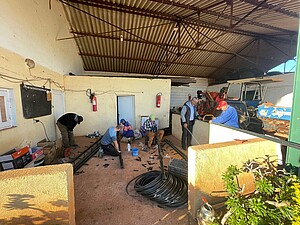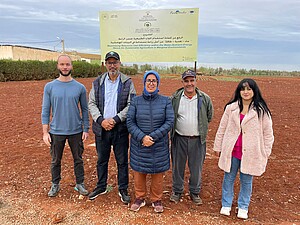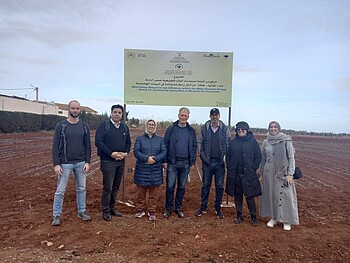Timeline & News
Master Thesis Defense at FEUP – September 2025
The student Eduardo Almeida Gomes successfully defended his master thesis at the Faculty of Engineering, University of Porto (FEUP), supervised by researcher Ana Pamero (INEGI) and with J. Germer serving as a member of the examination jury.
The thesis investigates agrivoltaic (Agri-PV) systems as an integrated approach to addressing global challenges in energy transition and food security. Three demonstration sites in the Mediterranean were analyzed, with simulations assessing energy yield, shading effects on crops, as well as economic and environmental impacts.
The results highlight the potential of Agri-PV to deliver both renewable energy and sustainable agricultural benefits. The case study in Egypt, for example, demonstrates a CO₂ emissions reduction of approximately 47 tons over 25 years.
This work provides valuable insights for planners, developers, and farmers aiming to implement sustainable dual-use land solutions.
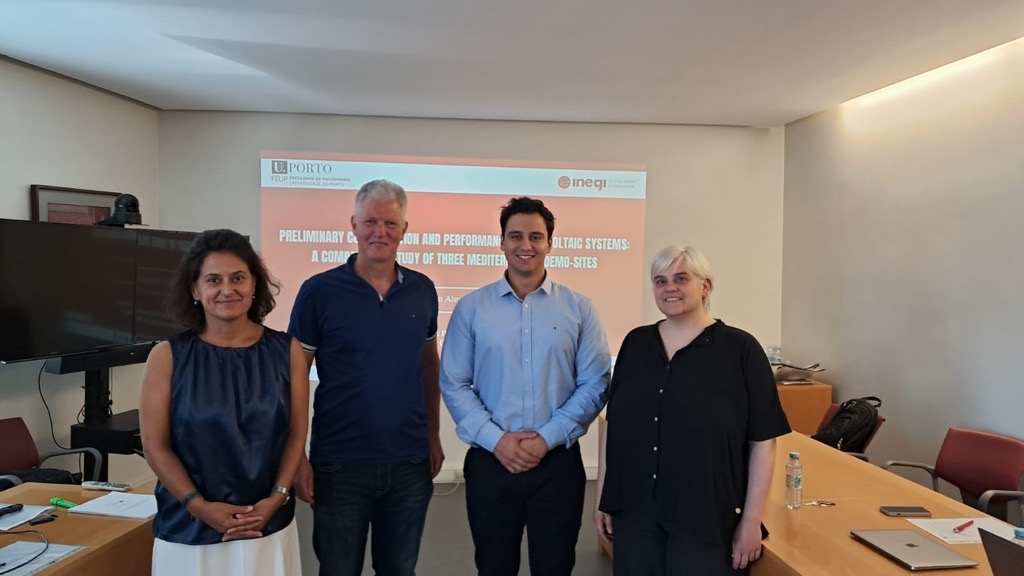
Successful Midterm Meeting and Hackathon in Cairo – May 2025
In May 2025, our midterm meeting took place in Cairo, combined with an exciting hackathon, at the British University in Egypt (BUE) with our Egyptian partners.
During the meeting, the project’s achievements to date were presented, and future goals for all participating countries were discussed. The event provided an excellent opportunity for knowledge exchange, strengthening collaboration among partners, and developing innovative approaches for the next project phases.
The hackathon, in particular, focused on practical solutions and fostered creative ideas that will directly feed into the project’s work packages. Thanks to the active participation of all partners, the meeting was a great success and laid a solid foundation for the coming months of the project.
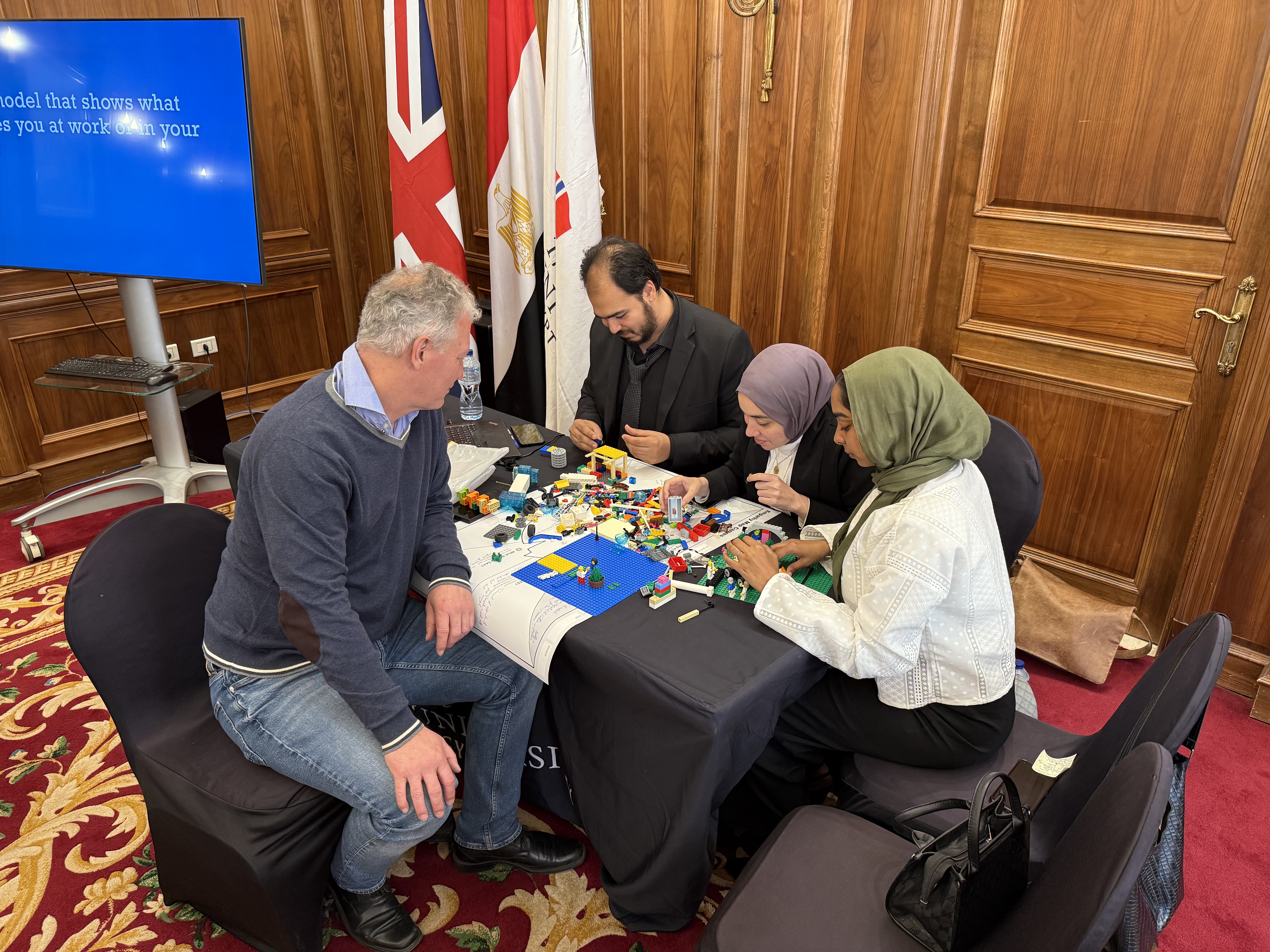
Pilot Implementation of the Living Lab in Portugal
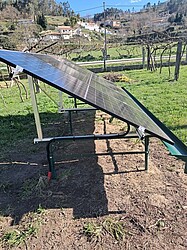
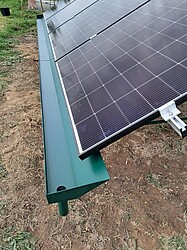
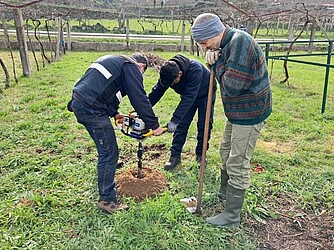
Our Project partner INEGI, has successfully implemented a pilot Living Lab in Tarouquela (Cinfães), Portugal. This demo site showcases the integration of photovoltaic (PV) systems within agricultural land, combining renewable energy production with sustainable farming practices.
Implementation
The PV structure was anchored securely using six deep holds to withstand external conditions like strong winds.
The system includes an inverter and a bidirectional meter for grid connection and real-time monitoring of voltage and current.
Raising Awareness Among Young Farmers in the Tafoughalt Commune, Berkane Province, on Optimizing Water Irrigation Through Quinoa Cultivation
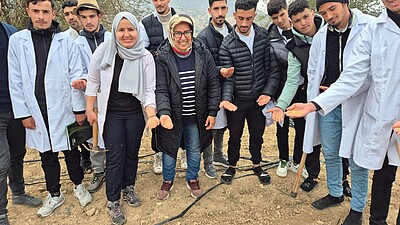
Quinoa, a pseudo-cereal with low water requirements compared to traditional cereals, offers a promising solution for efficient water use in agriculture. When properly managed, quinoa requires only 200 to 300 mm of water, distributed strategically across its growth cycle. This makes it an ideal crop for regions facing water scarcity, such as the Tafoughalt commune in Berkane Province.
By adopting quinoa cultivation, young rural farmers in the area can optimize water irrigation practices, reduce water consumption, and enhance agricultural sustainability. Raising awareness about quinoa's benefits and its water-efficient cultivation techniques is essential to empower farmers and promote resilient farming practices in the region.
Optimizing Water Use for Quinoa Farming in Northeast Morocco
With freshwater becoming increasingly scarce, efficient water management is more important than ever! In Berkane, our team, led by Sebastian Heintze in collaboration with ORMVAM, is conducting trials to optimize water use efficiency for quinoa cultivation.
We’re comparing three irrigation strategies:
- Traditional farmer-based irrigation
- FAO’s CROPWAT model-based irrigation
- Soil moisture sensor-based irrigation
This research will help farmers use water more efficiently while maintaining high yields. Stay tuned for more updates!
